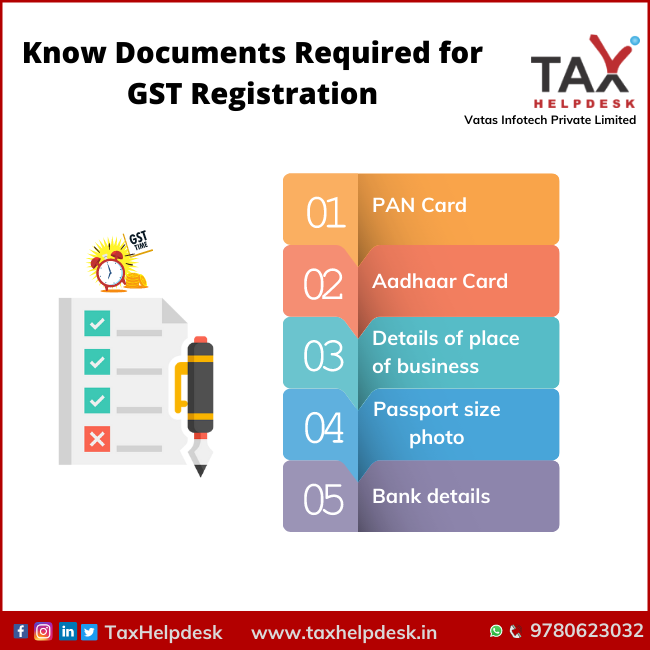Understanding the Benefits of Singapore GST Registration for SMEs
Understanding the Benefits of Singapore GST Registration for SMEs
Blog Article
The Ultimate Guide to Streamlining the GST Registration Process and Needs for Small Company Owners

Understanding GST Basics
To grasp the fundamentals of the Goods and Solutions Tax (GST) system, small company owners have to initially comprehend its underlying concepts and effects. GST is a value-added tax imposed on the majority of items and solutions for residential usage. It intends to enhance the taxes procedure by changing multiple indirect taxes imposed by the state and central governments. Under the GST regime, businesses are required to register and accumulate tax on behalf of the federal government, making certain openness and conformity.
One of the key principles of GST is input tax obligation credit rating, which permits businesses to declare credit rating for taxes paid on their purchases. Understanding these fundamental concepts is vital for small company owners to navigate the complexities of the GST system and make sure conformity with the legislation.
Qualification Standards for Enrollment
Having actually established a fundamental understanding of GST principles, tiny service owners must currently fulfill certain eligibility standards to proceed with the enrollment process (Singapore GST Registration). Businesses that were signed up under the previous tax regime (BARREL, service tax obligation, etc) are additionally mandated to sign up under GST. Agricultural services that just supply generate out of main manufacturing are exempt from GST enrollment.
Records Needed for GST Enrollment

Simplified Registration Refine Steps
Adhering to the collection and verification of the requisite documents, the registration procedure for GST can be navigated via a collection of streamlined steps made to promote reliable conformity for small business proprietors. Upon successful confirmation, an Application Recommendation Number (ARN) is released, indicating the conclusion of the GST enrollment process. By complying with these simplified steps, tiny organization owners can effectively register for GST and make certain conformity with tax obligation regulations.
Tips for Ensuring Conformity
To maintain regulative adherence and operational integrity, attentive oversight and aggressive steps are pivotal in making sure compliance with GST demands for small service proprietors. Small service owners should remain updated with GST laws, submitting due dates, and any type of modifications in tax rates to avoid charges and maintain a great standing with tax obligation authorities. One important pointer for conformity is to keep detailed and exact documents of all transactions, consisting of invoices, billings, and expenditures associated with GST. Frequently reconciling economic records with GST returns can assist in identifying and correcting any kind of discrepancies quickly. In addition, performing routine interior audits or seeking expert assistance can make sure that business is adhering to all GST regulations correctly. It is additionally essential for small company owners to purchase GST-compliant accounting software application that can enhance the tax declaring procedure and go to my site reduce errors. Going to GST awareness workshops or training programs can improve understanding and conformity with GST policies, ultimately benefiting the business in the lengthy run.
Final Thought
In conclusion, tiny company proprietors have to understand the basics of GST, meet the eligibility criteria, collect required records, and comply with the simplified registration procedure actions to guarantee compliance. By streamlining the GST registration process and needs, review small service proprietors can avoid penalties and run their organizations smoothly within the legal structure - Singapore GST Registration. It is important for local business proprietors to remain certified and educated with GST laws to maintain an effective service operation
Little business owners looking for GST enrollment should ensure they gather and send the necessary papers to complete the registration procedure successfully. The documents required for GST enrollment generally consist of proof of service registration or consolidation, FRYING PAN (Permanent Account Number) card of the business entity, address and identity evidence of the promoters/partners/directors, pictures, address proof of the area of service, financial institution account statements or terminated cheques, and authorization forms. Participating in GST awareness workshops or training programs can improve understanding and compliance with GST policies, inevitably benefiting the organization in the long run.
By simplifying the GST registration procedure and requirements, tiny service owners can stay clear of penalties and run their organizations efficiently within the click to read more legal framework. It is important for tiny organization proprietors to stay educated and compliant with GST laws to preserve an effective service procedure.
Report this page